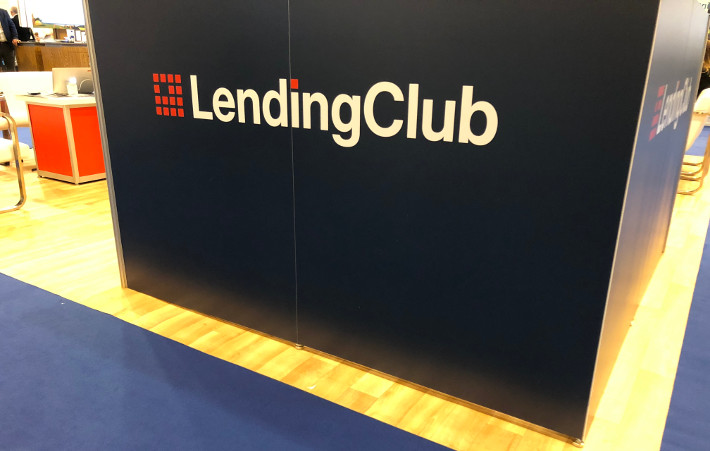p2p lending
Prosper Originates $631.9M in Q1
May 23, 2023Prosper Marketplace originated $631.9M in loans in the first quarter of 2023, up 13% YoY. Ninety percent of Prosper’s Q1 2023 loans were funded through their Whole Loan channel, down slightly from the 92% in Q4 2022. The company generated a loss of $9M on about $38M in revenue.
Prosper is one of the few fintech lenders from the ancient era to somewhat stick with its original business model. Although it moved away from peer-to-peer to Whole Loan sales, it did not become a bank like its competitors LendingClub and SoFi did. Prosper also seems to have stabilized after some tumultuous growth years in the pre-covid era.
Prosper Marketplace Grows Substantially in 2022
March 29, 2023 Remember Prosper Marketplace from back in the old peer-to-peer lending days? Well, they’re still around. In fact, the company originated $3.3B in loans in 2022, up from $1.9B in 2021. AND they were profitable, generating a net income of $70.5M, up from a net loss of $138.3M in 2021. Not bad! But this was foreseeable given that the company announced a surprise growth capital raise of $75M from a fund managed by Neuberger Berman in November of last year. At the time, Prosper CEO David Kimball said, “This is one of the most exciting times in Prosper’s history.”
Remember Prosper Marketplace from back in the old peer-to-peer lending days? Well, they’re still around. In fact, the company originated $3.3B in loans in 2022, up from $1.9B in 2021. AND they were profitable, generating a net income of $70.5M, up from a net loss of $138.3M in 2021. Not bad! But this was foreseeable given that the company announced a surprise growth capital raise of $75M from a fund managed by Neuberger Berman in November of last year. At the time, Prosper CEO David Kimball said, “This is one of the most exciting times in Prosper’s history.”
The company has long since moved away from a pure peer-to-peer lending model. Ninety-two percent of its loans in 2022 were funded through their Whole Loan Channel, for example.
And The Best Online Bank is… LendingClub?
July 25, 2021 The online lending community that once offered borrowers the opportunity to “bypass the banks and get better rates” is now technically the best online bank. Radius Bank, awarded best online bank of 2020, fully merged itself into LendingClub this month following the acquisition earlier this year. Radius bank’s website now points to bank.lendingclub.com.
The online lending community that once offered borrowers the opportunity to “bypass the banks and get better rates” is now technically the best online bank. Radius Bank, awarded best online bank of 2020, fully merged itself into LendingClub this month following the acquisition earlier this year. Radius bank’s website now points to bank.lendingclub.com.
It may be a bit jarring to those who remember Lending Club as a peer-to-peer lending platform, to see the FDIC-insurance guaranty at the bottom alongside offerings like a checking account. Bankrate.com added LendingClub to its rankings this weekend. It gives the company a score of 4.3, a good number of notches below the top score held by Ally Bank at 4.9.
LendingClub is just one of several fintech lenders that are fully transitioning to banks. Square flexed its new banking status starting this month, while Kabbage, under the American Express umbrella, has been pushing business checking accounts pretty hard.
LendingClub P2P Investors Will Be Able to Transfer Funds to Founder Savings Account
December 11, 2020 When Lending Club retires its peer-to-peer lending platform on December 31st, users will have the option to transfer their remaining funds to Radius Bank into something called a Founder Savings Account. The company acquired Radius Bank in February this year and has communicated that its efforts have been dedicated to this initiative.
When Lending Club retires its peer-to-peer lending platform on December 31st, users will have the option to transfer their remaining funds to Radius Bank into something called a Founder Savings Account. The company acquired Radius Bank in February this year and has communicated that its efforts have been dedicated to this initiative.
As part of this shift, peers that were part of their soon-to-be discontinued platfrom will be eligible for a “Founder” Savings account.
“We will let you know of the interest rate at launch,” Lending Club’s FAQ says on the matter. “You can expect that it will be a compelling rate, as an exclusive way to thank our investors for their dedication to our community.”
At present, a standard “high-yield” savings account at Radius Bank earns up to .25% APY.
The company acknowledes that not everyone will want to become a banking customer. “If you don’t choose to open a Founder Savings account, your Notes account cash position will continue to build until you transfer those funds to another financial institution.”
Bankrate awarded Radius with the title of “Best online bank of 2020.”
Lufax, a Chinese Online Lending Marketplace, to IPO on NYSE Next Month
October 27, 2020 Lufax, an online lending marketplace and one of China’s largest fintech companies, plans on going public by the end of the month on the New York Stock Exchange. Lufax is one of the multiple Chinese fintech companies grappling for a public offering amidst increasing tension between U.S. and Chinese markets.
Lufax, an online lending marketplace and one of China’s largest fintech companies, plans on going public by the end of the month on the New York Stock Exchange. Lufax is one of the multiple Chinese fintech companies grappling for a public offering amidst increasing tension between U.S. and Chinese markets.
Offering an online shopping mall for financial products, Lufax connects borrowers to various lending products supplied by traditional and alternative investors alike. Lufax was one of the largest, if not the largest P2P lender in China just two years ago before a major crackdown on the P2P industry forced the company to revamp completely.
Lufax plans to issue 175 million shares that will be priced from $11.5 to $13.5 each, according to a prospectus with the U.S. Securities and Exchange Commission last week. This would net the company around $2.36 billion.
The IPO would give the company around a $30 billion in valuation, lower than the $39.4 billion valuation it received in 2019 from a major backer Ping An Insurance Group.
Lufax reported more than $1 billion of profit in the six months up to June 30th, according to the filing. Last year, the firm’s assets dropped by 6.1% after a 30% reduction in transaction volumes. This was a cut of nearly all P2P transactions, in compliance with regulation from the Chinese government.
After the P2P industry grew unchecked for a decade, fraud concerns bloomed into outrage as hundreds of platforms covering hundreds of billions of dollars defaulted. According to Mckinsey, from 2013 to 2015, fintech firms offering P2P products exploded from 800 to more than 2,500 companies. More than 1,000 of these firms began to default on their debt, ballooning to an outstanding loan value of $218 billion in 2018.
In response to protests, outrage, and stadiums of helpless borrowers trying to gain their funds back from Ponzi schemes, the Chinese government cracked down hard on fraudulent firms. According to Reuters, regulators placed every P2P firm on death row, stating in 2019 that the industry had two years to switch to “small loans.” The shutdowns have cost Chinese investors $115 billion, according to Guo Shuquing, China Banking Regulatory Commission.
Pivoting away from these shutdowns, Lufax and many firms like Alibaba funded Ant Group are switching to lending marketplaces. Lufax works with 50 lending providers that hold $53 billion in assets as of June. Lufax believes that there are trillions of dollars in the untapped alternative finance market in China.
LendingClub Formally Ends “Peer” Aspect of Its Business, Proceeding With Radius Bank Acquisition
October 7, 2020 LendingClub is finally ending the “peer-to-peer” aspect of its platform for good. Earlier today, the company announced that it would cease offering and selling Member Payment Dependent Notes effective December 31st.
LendingClub is finally ending the “peer-to-peer” aspect of its platform for good. Earlier today, the company announced that it would cease offering and selling Member Payment Dependent Notes effective December 31st.
“Ceasing the Retail Notes program will allow LendingClub to redeploy capital and improve platform efficiency, enabling the company to help even more members as LendingClub progresses towards closing the Merger and becoming a bank holding company,” the company said in an official statement. “All Retail Notes outstanding as of the date the Retail Note program is ceased will be unaffected by the cessation of the program. Accordingly, with respect to such outstanding Retail Notes, LendingClub will continue servicing the corresponding member loans and information regarding such Retail Notes will remain viewable in the applicable Retail Note investor accounts.”
 LendingClub rose to fame with its peer-to-peer model nearly a decade ago, but using retail investors to fund loans has been eroding over time. ‘Peers’ Are Almost Gone From Lending Club’s Funding Mix was the title of a February 2019 deBanked story that highlighted this trend, for example.
LendingClub rose to fame with its peer-to-peer model nearly a decade ago, but using retail investors to fund loans has been eroding over time. ‘Peers’ Are Almost Gone From Lending Club’s Funding Mix was the title of a February 2019 deBanked story that highlighted this trend, for example.
Meanwhile, the focus on Radius Bank is a reminder that the announcement made nearly 8 months ago is still a work-in-progress.
“In connection with and in furtherance of the Merger, LendingClub has been in regular contact with federal banking regulators and, on September 25, 2020, filed an FR Y-3 application with the Federal Reserve to become a bank holding company,” the company said. “LendingClub plans to offer a full suite of products as a bank. This includes a high-yield savings account that will be initially exclusively available to its existing retail investors and will offer a compelling interest rate, as well as other products that take advantage of the marketplace to allow its customers to both pay less when borrowing and earn more when saving.”
Radius Bank was the subject of a major deBanked Magazine story in 2017 titled Tech Banks: Will Fintech Dethrone Traditional Banking?
LendingClub Retail Investors Still Frozen Out In Several States After Sudden Restriction
December 5, 2019 On September 23, retail investors on the Lending Club platform in 5 states received strange news, they had been temporarily restricted from buying notes because of the state they lived in. No further information was provided.
On September 23, retail investors on the Lending Club platform in 5 states received strange news, they had been temporarily restricted from buying notes because of the state they lived in. No further information was provided.
74 days later, investors in New York, Florida, Texas, Arizona, and North Dakota (the affected states) are still frozen out from buying notes. Restrictions in a handful of other states have existed for years.
Lending Club was asked about this by Wedbush Securities analyst Henry Coffey on the November 5th Q3 earnings call and CEO Scott Sanborn explained that it was due to a review of their state licensing requirements that was conducted in their pursuit of a bank charter. “As part of our overall preparation for the bank charter, we did an updated review of our licensing requirements,” Sanborn said. “We identified some that we have that we don’t need and some that we believe we need that we don’t have, and that’s what you’re seeing.”

Sanborn went on to describe the overall impact of temporarily losing those investors to their bottom line as immaterial and that they were working quickly to restore investing access.
A month later, the restriction persists. 58 comments on the subject have piled up on a LendAcademy blog post discussing the matter, many of them unhappy. Investors in those states can still trade notes on the secondary market, but that is not really a consolation.
It may not matter. Lending Club stopped relying on individual retail investors as a significant funding source long ago.
StreetShares Discontinues Major Segment of Its Financing Business
December 3, 2019 StreetShares quietly discontinued a major part of its financing business on November 15, a new disclosure filed with the SEC revealed. “For new customers, the Company is no longer offering to factor invoice receivables,” the letter signed by General Counsel and Chief Compliance Officer Lauren Friend McKelvey says.
StreetShares quietly discontinued a major part of its financing business on November 15, a new disclosure filed with the SEC revealed. “For new customers, the Company is no longer offering to factor invoice receivables,” the letter signed by General Counsel and Chief Compliance Officer Lauren Friend McKelvey says.
The company had purchased more than $112 million in receivables since it began offering this product in December 2016, had serviced 40 customer accounts, and had advanced as much as $7 million on a single invoice as recently as Fiscal Year 2019.
The company has only facilitated $180 million in funding to small businesses since inception in 2014. That would indicate that the invoice factoring portion was roughly half of the company’s funding volume.
As of November 15, the company said it only had one customer remaining that was still using this product and no new ones would be accepted. Instead it would continue to offer only loans and lines of credit.
StreetShares relied heavily on individual retail investors to purchase receivables, their publicly filed financials show. 98.28% of all funds advanced on invoices in FY19 came from the retail investor segment whereas it was only 50.22% in FY18.
The company had also recently reported a heavy net loss and soaring costs.





























